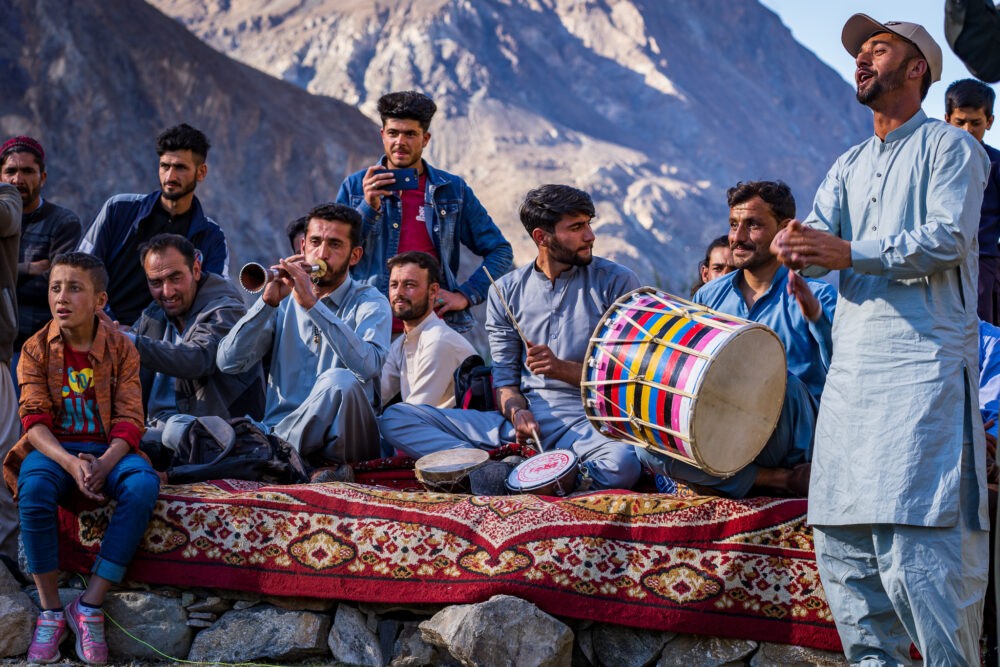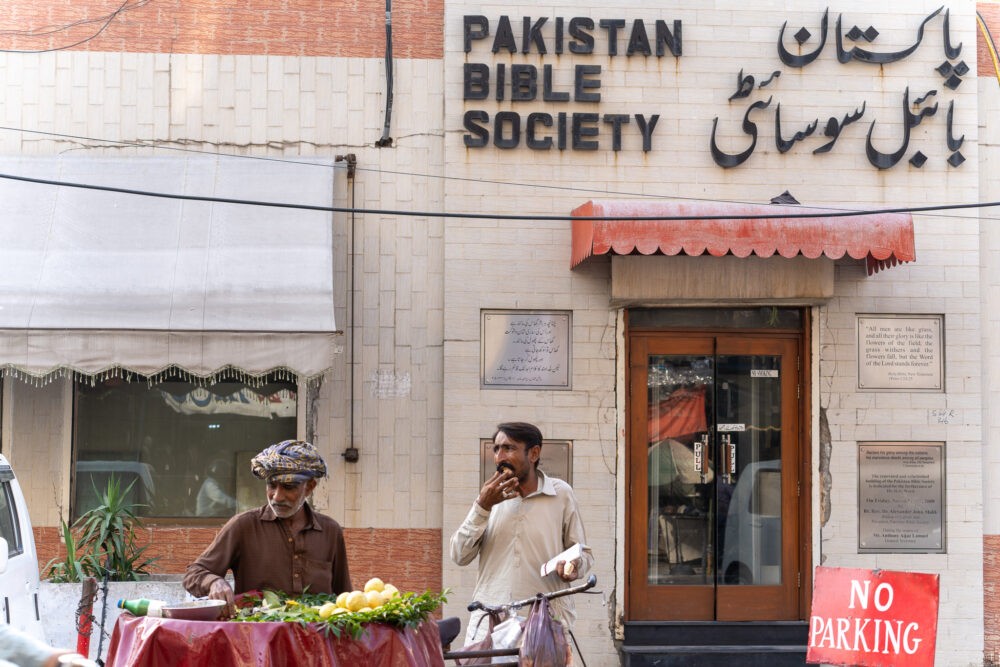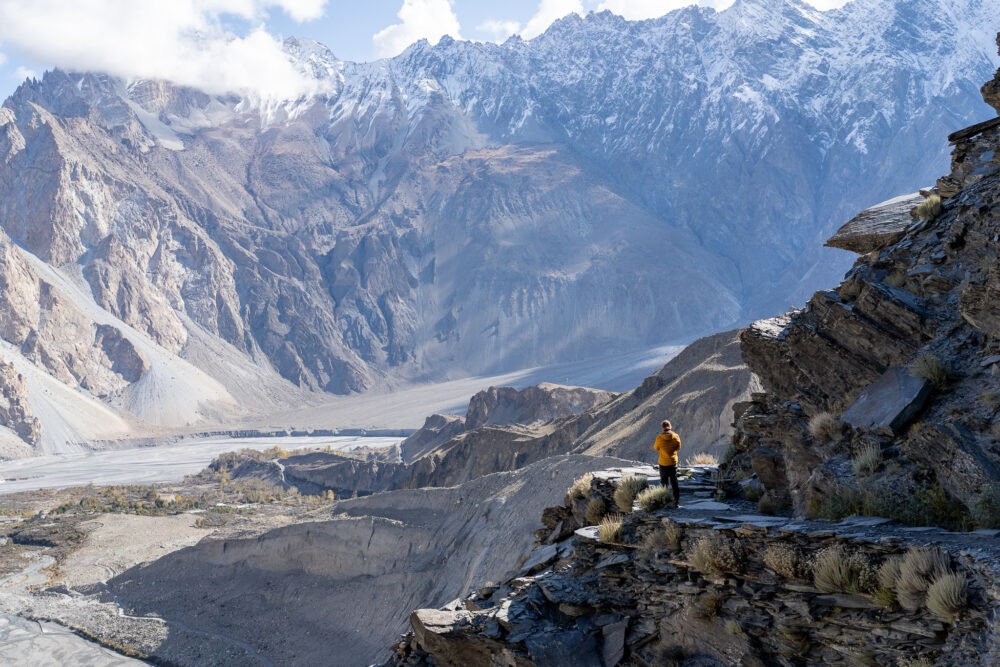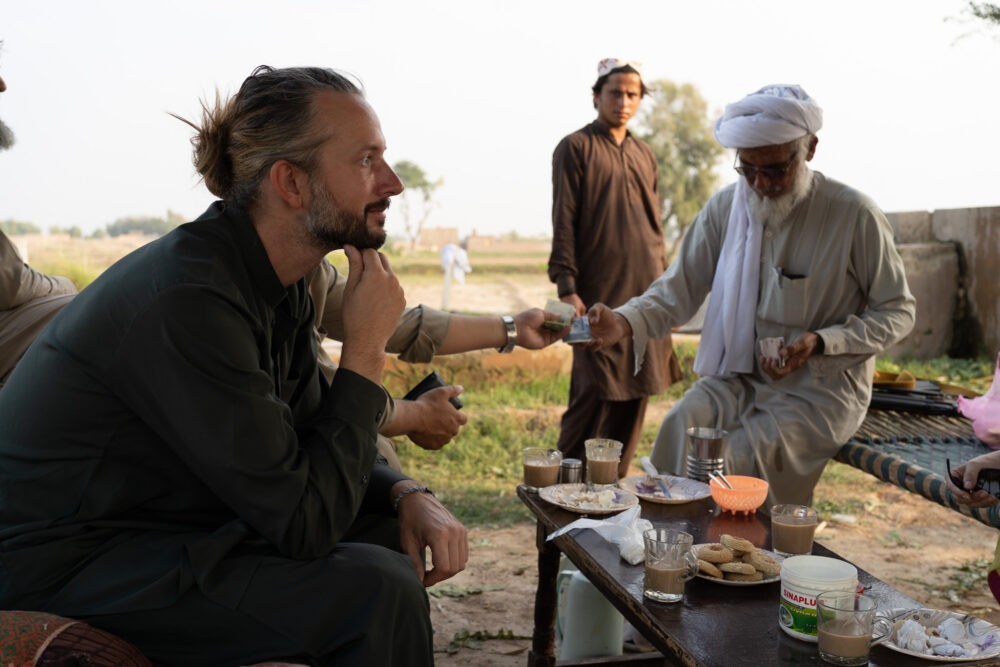Pakistan, with its stunning landscapes and rich culture, is increasingly becoming a destination of interest for travelers. If you’re wondering, “Is Pakistan safe for female travelers?” you’ve come to the right place. At SIXT.VN, we aim to provide you with practical information to help you make informed decisions about your travel plans. Pakistan offers a unique travel experience for women, including incredible cultural immersion and natural beauty, with proper preparation and awareness. This comprehensive guide covers everything you need to know to have a safe and fulfilling journey, answering all your questions about safety, cultural norms, and travel tips.
1. Understanding Safety in Pakistan
Is Pakistan safe for female tourists? Safety is a multifaceted issue, and Pakistan presents both challenges and opportunities for female travelers. While it’s true that some regions have security concerns, many areas are safe and welcoming, especially with the right precautions. Pakistan is making efforts to protect both locals and tourists. According to a 2023 report by the Pakistan Tourism Development Corporation (PTDC), tourist safety has significantly improved due to increased security measures and dedicated tourist police units. Understanding these efforts is key to assessing the real safety situation.
1.1. General Safety Overview
Pakistan’s safety landscape is complex. You’ll encounter diverse perspectives and experiences, with safety levels varying across regions. This means that the precautions needed for a trip to bustling Lahore will differ significantly from those required for exploring the serene valleys of Hunza. Pakistan deploys military checkpoints in many areas to monitor and manage security.
According to research from the World Travel & Tourism Council (WTTC) in 2024, investing in security infrastructure and training for tourism personnel enhances visitor safety and the overall travel experience.
1.2. Government Travel Advisories
Travel advisories from governments like the U.S. State Department often advise caution due to terrorism and violence risks. According to the U.S. State Department’s travel advisory updated in 2024, some regions of Pakistan are designated as Level 3 (“Reconsider Travel”) or Level 4 (“Do Not Travel”) due to security risks. However, these advisories can be broad. Many travelers find that with local insights and careful planning, these risks can be mitigated.
1.3. Personal Experiences vs. Official Warnings
Personal experiences from female travelers often paint a more nuanced picture. Many women report feeling safe and welcomed, highlighting the warmth and hospitality of the Pakistani people. However, respecting local customs and being aware of your surroundings is crucial.
 Pakistani men playing musical instruments outside.
Pakistani men playing musical instruments outside.
2. Specific Safety Concerns for Female Travelers
What safety tips can ensure a safe trip to Pakistan? While general safety is important, female travelers face specific challenges that require additional consideration. Understanding these concerns is the first step in mitigating potential risks.
2.1. Addressing Harassment and Assault
Harassment and assault are valid concerns. According to a 2023 study by the Aurat Foundation, a Pakistani women’s rights organization, public harassment remains a significant issue for women in Pakistan. To minimize risk, dress modestly, avoid isolated areas, and be mindful of your interactions with men.
2.2. Cultural Norms and Expectations
Pakistan is a conservative society, and understanding local customs is vital. According to research from the University of Lahore’s sociology department in 2022, respecting local traditions significantly enhances a traveler’s acceptance and safety. This includes dressing modestly, especially in religious areas, and being aware of gender roles.
2.3. LGBTQ+ Travelers
Pakistan has strict laws regarding same-sex relationships, making it unsafe for LGBTQ+ travelers to express their identity openly. According to Equaldex, a crowdsourced knowledge base on LGBTQ+ rights, same-sex sexual activity is illegal in Pakistan and punishable by imprisonment. LGBTQ+ travelers should exercise extreme caution and discretion.
3. Essential Safety Tips for Female Travelers in Pakistan
How can you ensure your personal safety as a female traveler in Pakistan? Practical safety measures can significantly enhance your travel experience. By taking proactive steps, you can navigate Pakistan with confidence and peace of mind.
3.1. Planning and Preparation
Thorough planning is the bedrock of safe travel. It’s not just about mapping out your route, but also about immersing yourself in the local culture, understanding potential risks, and knowing where to seek help if needed. This preparation can transform a potentially stressful journey into a confident exploration.
3.1.1. Researching Safe Areas
Identify regions known for their safety and stability. According to a 2024 report by the Pakistan Tourism Development Corporation (PTDC), regions like Hunza Valley, Gilgit-Baltistan, and certain parts of Punjab are considered safer for tourists due to lower crime rates and active tourism police presence.
3.1.2. Registering with Your Embassy
Registering with your embassy or consulate ensures they can assist you in case of an emergency. The U.S. State Department’s Smart Traveler Enrollment Program (STEP) allows U.S. citizens to receive important updates and locate you during crises.
3.1.3. Learning Basic Urdu Phrases
Knowing basic Urdu phrases can help you communicate effectively and show respect for local culture. Phrases like “Shukriya” (thank you), “Assalam-o-Alaikum” (peace be upon you), and “Maf kijiye” (excuse me) can go a long way.
3.2. Dress Code and Appearance
Modesty in dress is not just a suggestion; it’s a cultural expectation that directly impacts your safety and respect from locals. This isn’t about sacrificing your personal style but adapting it to fit the local norms, which can significantly ease your interactions and reduce unwanted attention.
3.2.1. Dressing Modestly
Dress modestly to respect local customs and avoid unwanted attention. According to a 2023 article in the “Journal of Islamic Studies,” modest dressing in Muslim-majority countries is seen as a sign of respect and cultural sensitivity. Loose-fitting clothing that covers your arms and legs is advisable.
3.2.2. Wearing a Headscarf (Duppatta)
Carrying a headscarf (dupatta) is useful for visiting religious sites and conservative areas. According to a 2022 report by the Council on Islamic Relations, wearing a headscarf is not legally required for foreign women but is often appreciated, especially in religious settings.
3.3. Accommodation and Transportation
Choosing the right accommodation and transportation options can significantly influence your safety. Safe and reliable options provide peace of mind and reduce potential risks associated with unfamiliar environments.
3.3.1. Selecting Safe Accommodation
Opt for reputable hotels or guesthouses in safe areas. Reviews from other travelers can provide valuable insights. Websites like TripAdvisor and Booking.com offer reviews and ratings from previous guests.
3.3.2. Using Reliable Transportation
Use reputable transportation services, such as pre-booked taxis or ride-hailing apps like Uber or Careem, especially at night. According to a 2023 study by the Urban Transport Journal, using formal transportation services reduces the risk of harassment and ensures accountability.
3.4. Social Interactions
Navigating social interactions with cultural sensitivity is key to a positive and safe experience. Understanding local customs and gender dynamics can help you avoid misunderstandings and ensure respectful communication.
3.4.1. Being Mindful of Interactions with Men
Be mindful of your interactions with men, avoiding prolonged eye contact and physical touch. According to a 2024 guide by the Pakistan Tourism Friends Association, maintaining professional and respectful boundaries is essential for foreign women.
3.4.2. Avoiding Isolated Areas
Avoid walking alone in isolated areas, especially at night. Stick to well-lit, populated areas and inform someone of your whereabouts. According to a 2022 report by the Citizens Police Liaison Committee (CPLC), most incidents of harassment occur in poorly lit and deserted areas.
3.5. Technology and Communication
In today’s world, technology is a powerful tool for staying connected and safe. From mapping your journey to keeping loved ones updated, technology can provide an extra layer of security.
3.5.1. Staying Connected
Purchase a local SIM card to stay connected and have access to maps and emergency contacts. Local telecom providers like Jazz, Telenor, and Zong offer affordable SIM cards with data packages.
3.5.2. Sharing Your Itinerary
Share your itinerary with family or friends and check in regularly. Using apps like WhatsApp or Viber can help you stay in touch and share your location.
 Two men stand on the street in front of the pakistani bible society sign
Two men stand on the street in front of the pakistani bible society sign
4. Cultural Sensitivity: Key to a Safe Trip
Why is cultural sensitivity important for female travelers in Pakistan? Cultural sensitivity is more than just good manners; it’s a critical component of your safety and well-being. By understanding and respecting local customs, you demonstrate your respect for the community, which, in turn, can enhance your acceptance and safety.
4.1. Understanding Local Customs
Learn about Pakistani culture and customs before your trip. Resources like the “Culture Smart! Pakistan” guide provide valuable insights into social norms and etiquette. According to a 2023 study by the Pakistan Institute of Development Economics (PIDE), travelers who show cultural awareness are more likely to have positive interactions with locals.
4.2. Respecting Religious Practices
Pakistan is an Islamic country, and respecting religious practices is essential. According to a 2022 guide by the Ministry of Religious Affairs, visitors should dress modestly when visiting religious sites, remove their shoes before entering mosques, and avoid eating or drinking in public during Ramadan.
4.3. Gender Dynamics
Be aware of gender dynamics and social interactions between men and women. According to a 2024 report by the Human Rights Commission of Pakistan (HRCP), understanding gender roles and boundaries can help female travelers avoid misunderstandings and unwanted attention.
5. Recommended Destinations for Female Travelers
What are the safest and most welcoming destinations in Pakistan for female travelers? Choosing the right destinations can significantly enhance your safety and enjoyment. Some regions are known for their hospitality, lower crime rates, and established tourism infrastructure.
5.1. Hunza Valley
Hunza Valley is renowned for its stunning landscapes and hospitable locals. According to a 2023 survey by “Travel & Leisure” magazine, Hunza Valley is consistently ranked as one of the safest and most beautiful destinations in Pakistan.
5.2. Gilgit-Baltistan
Gilgit-Baltistan offers breathtaking mountain scenery and a welcoming atmosphere. According to a 2022 report by the Gilgit-Baltistan Tourism Department, the region has a dedicated tourism police force that ensures the safety of visitors.
5.3. Lahore
Lahore, with its rich history and vibrant culture, is a relatively safe city with proper precautions. According to a 2024 report by the Punjab Safe Cities Authority, Lahore has implemented advanced surveillance systems to enhance public safety.
 A man walking down a scenic hiking trail overlooking a mountain view
A man walking down a scenic hiking trail overlooking a mountain view
6. Connecting with Other Travelers and Locals
How can you build a support network during your travels in Pakistan? Connecting with other travelers and locals can provide valuable insights, support, and friendship. Shared experiences and local knowledge can enhance your safety and enrich your journey.
6.1. Joining Travel Groups
Join online travel groups and forums to connect with other travelers. Platforms like Facebook groups and travel forums offer opportunities to share experiences, ask questions, and find travel buddies.
6.2. Engaging with Locals
Engage with locals respectfully and be open to their hospitality. According to a 2023 study by the Sustainable Tourism Foundation Pakistan, interacting with locals can significantly enhance a traveler’s understanding of the culture and improve their overall experience.
6.3. Using Couchsurfing or Homestays
Consider using Couchsurfing or homestays to stay with local families. These platforms provide opportunities to experience Pakistani hospitality firsthand and gain valuable insights into local life.
7. Emergency Preparedness
What should you do in case of an emergency in Pakistan? Being prepared for emergencies can make a significant difference in your safety and well-being. Knowing how to respond and where to seek help can provide peace of mind and ensure a swift resolution.
7.1. Important Contacts
Keep a list of important contacts, including local police, embassy/consulate, and emergency services. The emergency number in Pakistan is 1122. According to a 2022 guide by the National Disaster Management Authority (NDMA), knowing these contacts can help you access assistance quickly.
7.2. Medical Information
Carry necessary medical information, including allergies and medications. According to a 2023 guide by the Pakistan Medical Association, having this information readily available can assist healthcare providers in case of a medical emergency.
7.3. Travel Insurance
Ensure you have comprehensive travel insurance that covers medical emergencies and evacuation. According to a 2024 report by the International Association for Medical Assistance to Travelers (IAMAT), travel insurance can provide financial protection and access to quality healthcare services.
8. Debunking Common Myths About Pakistan
What are some common misconceptions about safety in Pakistan? Separating fact from fiction is crucial for making informed decisions. Many perceptions of Pakistan are based on outdated or exaggerated information.
8.1. Addressing Stereotypes
Address common stereotypes about Pakistan being unsafe and dangerous. While some regions have security challenges, many areas are safe and welcoming. According to a 2023 article in “The Diplomat,” positive stories and experiences from travelers can help debunk negative stereotypes.
8.2. Highlighting Positive Experiences
Share positive experiences and stories to promote a balanced view of Pakistan. Social media platforms and travel blogs can be powerful tools for showcasing the beauty and hospitality of the country.
8.3. Promoting Responsible Tourism
Promote responsible tourism by encouraging travelers to respect local culture and support local communities. According to a 2022 report by the World Tourism Organization (UNWTO), responsible tourism can contribute to sustainable development and improve the lives of local people.
9. SIXT.VN: Your Partner for Safe and Convenient Travel in Vietnam
While this guide focuses on Pakistan, SIXT.VN is your trusted partner for safe and convenient travel in Vietnam. We offer a range of services to make your trip seamless and enjoyable.
9.1. Comprehensive Travel Services
SIXT.VN provides comprehensive travel services, including:
- Airport Transfers: Safe and reliable airport transfers to start and end your trip hassle-free.
- Hotel Bookings: A wide selection of hotels to suit your budget and preferences, ensuring a comfortable stay.
- Tours: Expertly curated tours to explore the best of Vietnam, with knowledgeable guides and comfortable transportation.
- Flight Bookings: Convenient flight booking services to help you find the best deals and schedules.
- Travel Consultation: Personalized travel consultation to help you plan your perfect trip.
9.2. Ensuring Your Safety and Convenience
We prioritize your safety and convenience by:
- Providing reliable and vetted transportation services.
- Offering 24/7 customer support.
- Partnering with reputable hotels and tour operators.
- Ensuring all services meet high safety standards.
 us sharing tea and cookies with a group of pakistani men in a field
us sharing tea and cookies with a group of pakistani men in a field
10. Conclusion: Is Pakistan Safe for Female Travelers?
So, is Pakistan safe for female travelers? With careful planning, cultural sensitivity, and practical safety measures, Pakistan can be a rewarding and enriching destination for female travelers. While it’s essential to be aware of potential risks, focusing on the positive aspects and taking proactive steps can ensure a safe and memorable journey. At SIXT.VN, we encourage you to embrace the adventure and discover the beauty and hospitality of Pakistan.
FAQ: Your Questions Answered
1. Is it safe for a solo female traveler to visit Pakistan?
Yes, with proper planning and precautions. Stick to safe areas, dress modestly, and be mindful of social interactions.
2. What should female travelers wear in Pakistan?
Loose-fitting clothing that covers your arms and legs. Carry a headscarf for visiting religious sites.
3. Which are the safest cities to visit in Pakistan?
Hunza Valley, Gilgit-Baltistan, and Lahore are generally considered safe with necessary precautions.
4. How can I avoid harassment in Pakistan?
Dress modestly, avoid isolated areas, and be mindful of interactions with men.
5. What should I do in case of an emergency?
Keep a list of important contacts, including local police, embassy/consulate, and emergency services. The emergency number in Pakistan is 1122.
6. Is it necessary to hire a guide in Pakistan?
Hiring a guide can enhance your safety and provide valuable insights into local culture.
7. How can I stay connected in Pakistan?
Purchase a local SIM card to stay connected and have access to maps and emergency contacts.
8. What are some common cultural customs to be aware of?
Respect religious practices, dress modestly, and be mindful of gender dynamics.
9. Is Pakistan safe for LGBTQ+ travelers?
Pakistan has strict laws regarding same-sex relationships, so LGBTQ+ travelers should exercise extreme caution and discretion.
10. What is the best time to visit Pakistan?
Spring (March to May) and autumn (September to November) offer pleasant weather and are ideal for travel.
By addressing these common questions and providing actionable advice, we aim to empower female travelers to explore Pakistan with confidence and ensure a safe and unforgettable experience.



